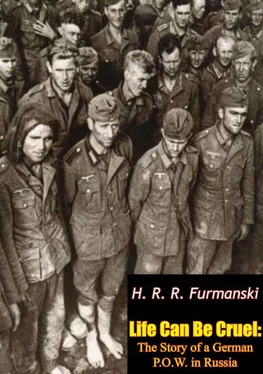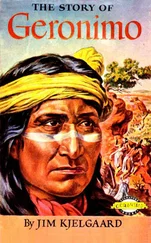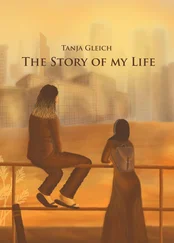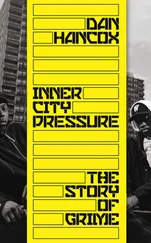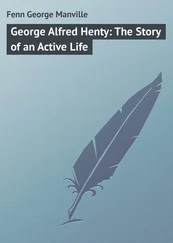On the night of November 20 we arrived at Frankfurt on the Oder. As soon as we left the train we were divided into two groups: those who were going to the East zone could board a train the same night, but those going to West Germany had to spend the night in the waiting room and take the train the next morning. At 4:00 A.M. the train pulled out of Frankfurt in the direction of Helmstedt, the end station of East Germany, arriving about 10:00 A.M. Across from Helmstedt is Friedland—the door to freedom, and the fulfilment of our hopes and dreams. On the other side, some two hundred yards away, we could see the Red Cross wagon, the American officers, the Salvation Army building, and the buses. Marching in groups of five, we passed the Russian guard at the border showed our discharge papers—and then were free.
As soon as we passed the guard we knelt to touch the ground. The American officers and Red Cross workers gave us a hospitable welcome. Buses carried us to the transit camp in Friedland, where we had our first decent bath and were given new underwear, food, and a bed. In the meantime we were registered and subjected to physical examination.
I could not rest until I knew something about my relatives. I was looking for the Red Cross office, finding it in the main building, a well-equipped office with photos and addresses of people who were expecting somebody back from prison camp or from East Germany. I went to the window for refugees from East Prussia and gave my name, asking for my parents and sister. The lady on duty went through book after book to find the names I had given her. I was shaking, the sweat running down my face, my heartbeat so loud I was sure everyone could hear it. I could not believe what the lady was telling me, having to ask her again and again. But it had the ring of truth, and I stood helplessly while her words bored into my very soul. My father had passed away in November, 1944; my mother had been shot down by Russian soldiers in 1945; my sister and both of her children had been displaced to Siberia and died of starvation in 1946; a niece had been repatriated in April, 1949. Everything broke down inside me; all my hope, the strength to which I had clung in the past seven years, left me with this terrible news. I was a stranger in West Germany, with no friends, no relatives, and no home.
I tried to pull myself together, wondering what to do first. In Friedland I received forty marks, enough to rent a room. I found a furnished room, paying 12.50 marks a week in advance, which left me sufficient money for food.
In the weeks to come I was unable to work and received unemployment compensation of 17.50 marks a week, but the room rent took most of the money. For three months I was under a doctor’s care, taking calcium shots three times a week, and without the money to eat properly. I decided to go on my own and look for a position, but I found little sympathy for a homeless refugee. As a repatriated former soldier I had to work for less money than others. I was glad to earn an honest living. As soon as I had become adjusted to normal living, I tried to find my niece; the Red Cross helped me to locate her. Though she was living far from me, I nevertheless took several days off from my work to see her, for I wanted to know the terrible truth about my mother’s death. When I went to her apartment, her landlady told me that she was working and would not be back until afternoon. It was still early in the day, but I went to the train station and waited until she came.
As train after train arrived without her I became more nervous by the minute, my heart beating heavily and my palms damp with perspiration. Finally I saw her leave the train, and I moved back a few steps to let her pass the ticket window. When she was beside me, I called her name. She looked at me and fell crying into my arms. I tried to calm her, but I was more nervous than she. With my last pennies we went into the nearest coffee house where we would be undisturbed.
She told me about the death of my father and the terrible death of my mother. She went on and on, telling me all her experiences during the time when the Russian soldiers had opened fire on my hometown. Her impressions seemed badly garbled, for she had so much to tell and could not keep the story straight. I could see that her mind was too full of all those terrible incidents to tell the story in chronological order. I had to piece it together from what she could tell me.
When the Russian Army invaded our hometown, the younger people fled out of town, but the older ones stayed there in the basements and air-raid shelter, where they were safer than being on the road. My mother, she told me, tried to walk out of town, after staying in the basement for some time. My mother was then almost seventy years of age and couldn’t walk very fast; nevertheless, she walked about eight miles into a small village, where she was shot in the forehead by a Russian soldier. Nobody had the time or the courage to bury the dead, though some friends of ours brought back my mother’s purse and kept it until my sister returned to town with her children, after fourteen days of wandering from farmer to farmer, begging for food and shelter. On her return to our town she found her house and our parents’ house burned to the ground. Only a few survivors remained, and their ordeal was just beginning. My niece told me how my sister had to work for the Russian soldiers to get food for the children.
Hunger destroys human values. Some of the people in our town turned Communist as soon as the Russian Army entered the town, trying to be friendly with the soldiers. My family and the family of my sister were considered among the upper ten thousand, for we had four houses of our own, and my sister’s husband was a jeweler and optician. My father’s business was only a few blocks away, and our family was well-known in the town. Those who sought to collaborate with the Communists told the Russian soldiers that my sister had diamonds and gold in her possession. The Russian state police took my sister and her children into custody, questioning her about the jewelry, finally beating her and confining her in prison. She and the children were displaced to Siberia, where my sister died of starvation after six months. My niece was kept in prison until 1949.
I promised my niece that I would take care of her, for I was the only male survivor of the family. Back on my job, my mind occupied with all these terrible experiences in our family, I found it difficult to work. Homeless, without friends, a stranger uprooted in West Germany—what future was there for me here? Perhaps I could start a new life in the United States; I determined to try. I went to the American Consulate and made my application to enter the United States as a refugee. I had to wait six years until my dream came true, six long years that seemed an eternity.
But now I am living in a free world, free of fear and anxiety, free of the past and looking forward toward a better and happy future. With all my heart and soul I can say, “God bless America.”
REQUEST FROM THE PUBLISHER

Thank you so much for reading our book, we hope you really enjoyed it.
As you probably know, many people look at the reviews before they decide to purchase a book.
If you liked the book, could you please take a minute to leave a review with your feedback?
60 seconds is all I’m asking for, and it would mean the world to us.
Thank you so much,
Pickle Partners Publishing

This edition is published by PICKLE PARTNERS PUBLISHING — www.pp-publishing.com
Читать дальше
